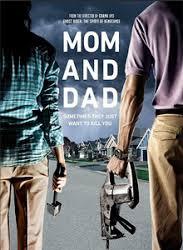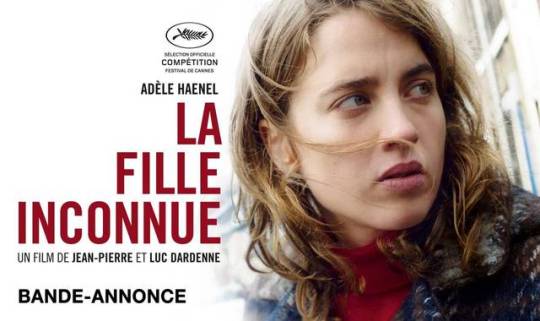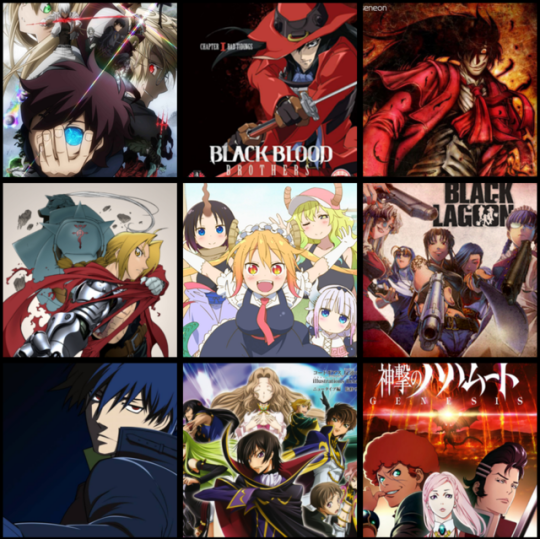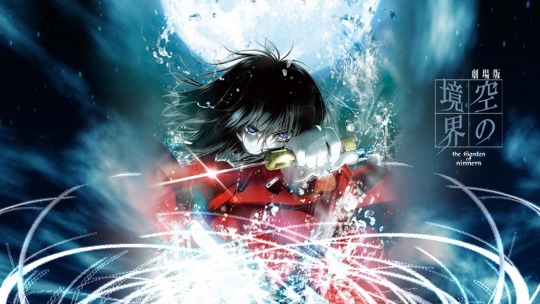#I knew subtitles have great comedy potential and have seen it
Text
Preparing for a project by listening to audio descriptions of various stories, The Owl House S2E1:
Luz: "she's doing her best now"
Description: she breaks a jar of apple blood
#I knew subtitles have great comedy potential and have seen it#but I didn't consider this lol#said project will be a little different bc it's for a comic instead of a movie or show but it's still beneficial#learning new things#audio description#accessibility#the owl house#toh#eda clawthorne#eda the owl lady
15 notes
·
View notes
Link
By Scott Moore April 25, 1999
At first blush, Lucy Liu seems to have little in common with the character she plays on "Ally McBeal."
Unlike the assertive Ling -- soft L, soft G -- she doesn't growl. Neither is she sarcastic, rude or abrupt.
Rather, it's with enthusiasm, courtesy and a bit of a giggle -- traits Ling Woo would never permit -- that Liu explains the hardships of portraying this very litigious woman each week on Fox's "Ally McBeal" (Monday at 9 on Fox).
"I can barely keep a straight face most of the time in the scenes," she said.
The insulting Ling Woo has little time for emotion -- or so viewers first thought. After the death of a young boy, the character kept up the persona by declaring: "We knew he was dying, Ally. This isn't the world's biggest shock. The boy had leukemia. Get over it."
The true shock came moments later, when Ling was seen crying outside the hospital parking lot -- and later still when she apparently arranged for a blimp to convey a comforting sign to Ally.
The turn of events "are just as surprising to me as to the audience," Liu said.
The actress has had quite a ride since being introduced in the second week of the season as the ill-tempered friend of icy attorney Nelle Porter, played by Portia de Rossi. A potential cash cow for the law firm and a romantic target for perpetually excited senior partner Richard Fish, Ling instantly drew the scorn of the rest of the firm and the attention of a large fan base, helping move the series into the Top 20 in the weekly ratings.
The turn of events, like each week's story line, has been a pleasant surprise to Liu, who was rejected last year while auditioning for the role of Nelle.
"They said they'd think about me in the future," Liu said. "But I was the only person of color there at all," of the half-dozen actresses applying for the part.
However, a few days later, she was cast for a role that writer-producer David E. Kelley created for her. Further, color doesn't seem to have any detriment on Kelley's offbeat comedy, where interracial relationships are commonplace.
If anything, Liu's Chinese heritage works to her advantage. Kelley has used her ability to speak Mandarin in a couple of story lines -- Ling inadvertently instructed waiters to cook John Cage's pet frog Stephan ("Tastes like chicken") and addressed a jury with nonsensical phrases that Liu's mother helped her construct. ("It doesn't matter what I say here," said the subtitles, "because none of you speak Chinese. But you can see from my sad face . . . I'm sympathetic.").
As a result, Ling Woo has evolved from an Asian stereotype -- that of Dragon Lady or sexual object -- to a multi-dimensional character. In addition to the show of emotion, Ling recently was revealed to have a law degree and joined the firm.
Still, Liu's character certainly has draconian elements. Her appearance on screen is often accompanied by glares or "The Wizard of Oz's" Wicked Witch of the West theme. And Ling's creative foreplay-but-no-play romance with Fish has gained Liu a growing fan base and several job offers.
"I knew she was well-rounded from the beginning," Liu said. "There's friction, and she's blunt and honest, but I always knew she was a sympathetic character."
Sympathetic? Ling yelled at a man in a wheelchair to watch where he was going. ("It's bad enough you people get all the parking places.") She declares that "men are horny toads." She has sued a radio shock jock for contributing to sexual harassment and a nurse of a plastic surgeon for having natural breasts.
Ling would interrupt here to ask, "Do you have a point?" Liu only laughs.
"I have to study her a great deal so she can shoot them out," Liu said of her character's audacity. "She doesn't hesitate when she talks or after she talks. If I know the lines, I can be more secure when I try to express her.
"She's a very clear-minded, blunt person. She's not disciplined, so I need to discipline myself, so she doesn't get lost or muddled."
Liu, born in New York City's Queens in the 1960s (she doesn't reveal her age), began acting while majoring in Asian languages and cultures at the University of Michigan. She played the lead in "Alice in Wonderland."
She had recurring roles on "ER," "High Incident" and "Coach," and guest spots on "NYPD Blue," "L.A. Law," "Michael Hayes" and "The X-Files." She also had a regular role as a brainy student in the short-lived Rhea Perlman comedy "Pearl."
And after playing a former girlfriend in "Jerry Maguire" and a hooker in "Bang," she made a mark this year with her portrayal of a brutal dominatrix in the Mel Gibson action-thriller "Payback." Liu also appears in "True Crime" with Clint Eastwood, "Molly" with Elizabeth Shue, and the "Austin Powers" sequel, "The Spy Who Shagged Me." And she was just cast in Ron Shelton's "Play It to the Bone."
"I've come to terms with things the last few years, so I can appreciate things as they're happening," she said.
Her favorite part of playing Ling, she said, are the romantic scenes with Fish (played by Greg Germann, a fellow accordion player).
"They're a real challenge for me, because my roles before didn't involve sexuality," said Liu. "I think, Oh, I can't do that. But, hey, I'm a woman, why not find some sensuality in that? When you discover yourself and allow yourself to be sexual, it's a really liberating feeling."
In fact, Liu says Fish is the character to whom she is most drawn: "I'm attracted to humor. Laughter is the most important thing in the world -- it takes 10 years off your age."
So, Liu is able to laugh off criticism from those who try to attach stereotypical labels to her character. "Chill out, take a pill or don't watch the show," she said.
The line could have been Ling's, except it was accompanied by a giggle.
CAPTION: Lucy Liu: "I can barely keep a straight face most of the time in the scenes."
CAPTION: LUCY LIU
14 notes
·
View notes
Photo










movies watched in 2018
santoalla - this really suffered from poor sound recording/editing and lack of subtitles. i feel like i missed a lot of details. it’s an interesting story, but the film itself wasn’t terribly engaging.
my friend dahmer - a little disappointed in this one. i feel like they changed a bit too much from the graphic novel to make us feel sympathy for him. i’m not opposed to the film trying to remind us that jeff dahmer was once a person with potential to be good, and my issue isn’t so much with whether or not this “humanizes” him; it’s more that the book was from the POV of the best friend and a lot of this stuff didn’t really fit that narrative, so they kind of switched to...is there a visual third person omniscient equivalent? when necessary, and it made the film feel choppy to me. the book is amazing and everyone should read it. it’s not about making you feel sorry for the guy; it simply tells the story from the POV of a friend who knew something wasn’t right but had no way of knowing who this guy really was or would become. the movie seemed more interested in just telling the early jeffrey dahmer story, which honestly i found a lot less compelling. the kid playing dahmer was great, though.
insidious...4? whatever the fuck number this is - i feel like this was a cast of perfectly good actors who were constantly told “make it bigger!” by the director. that’s the only way these performances make sense to me. and the story was pretty stupid, but, i mean...it’s the insidious franchise; that was a given.
mom and dad - i wanted to like this more than i did, but i still enjoyed it. horror comedy that had a little trouble balancing the horror and humor, but it features nicolas cage at his most nicolas cage, so for that alone, give it a shot.
father figures - why the fuck did jk simmons agree to do this??? it actually wasn’t as horrible as it could have been; just garden variety bad, unfunny comedy.
saturday church - really gorgeous, well-acted (and sung!) and creative. the screenplay maybe could’ve used a little tightening in some spots and additions in others in my opinion, but really i have no complaints; it’s excellent.
ex machina - i’m not super into science fiction, but given the sheer number of people saying this movie needs to be seen, i figured, why the hell not. and i really enjoyed it. the existential crises it triggered aside. it’s thoughtful, imaginative and looks incredible.
a quiet place - i managed to not pee myself once, so i’d consider it a success. of course i did spill sprite in my lap so everyone thought i did anyway. really, as much as my irrational loathing of john krasinski makes me want to deny it...it’s really good. about as good as i’ve seen pg-13 horror get. it’s got so many clever blink and you’ll miss it moments that show how much attention was paid to world-building, and there’s some faith in the audience to catch on to things themselves without needing a narrator explaining it all. the only thing i didn’t like? the music. the fact that it HAD music. the sound editing with the natural sounds was stellar, the way everything was amplified. but the loud music there just for the sake of accentuating scares detracted from the movie for me. a big part of what makes this movie works is that it feels pretty goddamn real. the music takes away from that.
besides being scary, it works as a post-apocalyptic family drama. and again, it’s really fucking good. there’s a scene where john krasinski is telling his son he needs to go off and do something alone to save a family member. the kid is absolutely frantic and you can see him straining not to speak as he “yells” that he can’t do it, his gestures getting bigger and “louder” as the conversation wears on. i was in tears during that scene. not because i felt sorry for the kid, but because i was feeling his terror as if it were my own. i felt like i was in that fucking field with a paul bunyan-looking john krasinski being told “go run headlong into a nest of deadly ear monsters.” i wasn’t scared because of the images onscreen or waiting for the next attack; i genuinely felt like i was in the moment with them.
that...is incredibly rare for me with film. i fucking hate that fucking jim halpert made me feel that, but i can’t pretend it didn’t happen. and this wasn’t the only time i felt that way, just the most dramatic. i felt reagan’s i-will-fucking-punch-your-stupid-face frustration during the hearing aid scene to the point where i was fuming in my seat. (i mean john krasinski often makes me feel that way, but still.) i knew emily blunt was in labor, but my heart absolutely pooped its pants when i saw that field light up red; I KNEW EXACTLY WHAT WAS GOING ON and i still reacted like i was there with them. god help me, i felt the overwhelming love in the slow dance shot. and that intro, holy fuck. besides immediately feeling emily blunt’s exhaustion and the kids’ restlessness and generally shitty-feeling-ness in those first shots, i was 100% not expecting shit to get as real as it did so fast (even though part of it was used in the trailer).
i hate that i loved it this much, truly :P but i did. it has its flaws for sure, namely the fucking music, and the creatures had a creative design (of course they’re basically giant sets of ears) but honestly they looked pretty silly. some of the scenes dragged longer than they needed to. but i did really appreciate it taking its time to let dread build rather than cramming in scares and action scenes on top of each other. the waiting and dreading seems like it would be so awful in this situation. again, put us there with them. fucking hell. pg-13 horror that’s good is so rare. horror this good is so rare. fucking jim.
all the money in the world - i found the stuff with the family super-interesting; the stuff with the son and the kidnappers super-boring, so i guess i’m split on this one.
la fille inconnue - i loved how absolutely real this movie felt. i loved how moments dragged awkwardly in real time; i loved the natural performances (i’ve forgotten the lead actress’s name but she’s absolutely brilliant). i knew pretty quickly who’d killed the girl, but i’m not sure it was supposed to be difficult to figure out, either. i do wish it had had more of an ending rather than just ending, but...i guess that fits in with its realism.
#movies watched in 2018#horror movies#MWi2018: my friend dahmer#MWi2018: santoalla#MWi2018: mom and dad#horror movies: mom and dad#MWi2018: insidious 4#horror movies: insidious#horror movies: insidious 4#MWi2018: saturday church#MWi2018: father figures#horror movies: a quiet place#MWi2018: a quiet place#MWi2018: all the money in the world#MWi2018: la fille inconnue#MWi2018: ex machina
6 notes
·
View notes
Text
Netflix is doubling down on Asia with K-dramas and mobile-only deals. But China remains elusive
New Post has been published on https://appradab.com/netflix-is-doubling-down-on-asia-with-k-dramas-and-mobile-only-deals-but-china-remains-elusive/
Netflix is doubling down on Asia with K-dramas and mobile-only deals. But China remains elusive
The entertainment giant added 9.3 million paid subscribers in Asia Pacific last year, a 65% jump compared to 2019. Revenue in the region soared almost 62%, compared with 40% in Europe, the Middle East and Africa.
That momentum has encouraged Netflix to direct more firepower to Asia. It’s made plans to roughly double its budget for original content in the region this year in the hope of signing up even more new customers in India, South Korea, Japan and elsewhere. For the time being, though, mainland China remains off limits. (The company declined to specify how much it would spend.)
“We’re excited — massively excited, I would say — about the potential in Asia,” Greg Peters, the company’s chief operating officer and chief product officer, told Appradab Business. “There’s literally hundreds and hundreds of millions of people that we’re still trying to find a great way to connect with and entertain.”
Netflix (NFLX) moved into Asia Pacific five years ago by launching in Japan. At the time, the California-based company was essentially “a startup” in the region, said Peters, adding that it had no local workers or even office space.
Times have changed. Three years ago, CEO Reed Hastings predicted that the “next 100 million” users would come from India alone, and the company has since seen “big growth” in viewing there. Netflix spent some $2 billion from 2018 to 2020 to either license or produce content in Asia, and has now amassed a library of more than 200 original Asian titles. It also employs about 600 staffers across the region and keeps its APAC headquarters in Singapore.
The winning formula relies in part on taking hit shows from the West and marketing or adapting them for other audiences. In 2019, it rolled out a special season of “Queer Eye,” where the cast performed makeovers in Japan. In December, it announced a South Korean version of “Money Heist,” a Spanish crime drama that has won critical and audience acclaim.
But the company has found that Asian audiences don’t just want to watch adaptations of Western shows.
When Minyoung Kim joined Netflix in 2016 as its first Asia-based content executive, the company “knew that local content was going to be a really important factor for growing our business in Asia,” she said.
“We just didn’t have … proof,” added Kim, who is vice president of content for Netflix in South Korea, Southeast Asia, Australia and New Zealand.
Today, that’s no longer the case. Just as Netflix’s international shows have worked in different markets, the company has found that its Asian shows have appeal worldwide. Japan’s “Alice in Borderland,” South Korea’s “Kingdom” and “Indian Matchmaking,” which was shot between India and the United States, have all been breakout successes around the globe.
Two other factors have been driving Netflix’s growth in Asia. Last year, Korean dramas, or “K-dramas,” dominated its top 10 lists in Southeast Asia. Regional viewership for Korean content quadrupled last year compared to 2019. Regional viewership of Japanese anime, meanwhile, doubled year-over-year.
A scene from “Kingdom.” The South Korean thriller was a recent hit for Netflix across countries. Credit: Netflix
Building an audience in Asia also means that Netflix has had to expand the number of languages it supports. The service is now available in 35 languages, including Hindi, Chinese, Vietnamese and Malay. It is continuing to add more, including subtitling and dubbing options.
The company has also unveiled a cheaper mobile-only plan to cater to Asian audiences who watch a lot of TV on their phones, even at home. The offering started in India in 2019, and has since expanded to other countries, such as Indonesia, Philippines and Thailand. (Amazon (AMZN) has picked up on the trend, too, launching a mobile-only subscription for Prime Video in India last month.)
Peters said that Asian viewers have also helped the company develop new technology that it has since rolled out globally. Someone trying to learn a foreign language, for example, might want to watch a show in slower motion. That led Netflix to introduce the ability to toggle video playback speed, which is now available worldwide.
The difficulties of going global
As competition continues to heat up, the need for new content has only gotten stronger. In recent years, Netflix has lost parts of its catalog to studios that have launched their own streaming services (including HBO Max, owned by Appradab’s parent WarnerMedia). By stocking up on original content, the company can hedge against the risk of losing subscribers to competitors.
In a letter to shareholders last month, the company acknowledged as much, saying it had been expecting more competition worldwide for years. “This is, in part, why we have been moving so quickly to grow and further strengthen our original content library across a wide range of genres and nations,” it wrote.
That line of thinking has allowed Netflix to build up an arsenal of new movies, series and documentaries, with more than 500 titles almost ready to launch. It even plans to release a new original film each week in 2021.
The company faces some significant challenges in international markets, though. In India, for example, Disney (DIS) has partnered with local player Hotstar to offer live cricket matches.
“One of the things that Disney/Hotstar has in India that they [Netflix] don’t have is live sports,” said Neil Macker, a senior equity analyst at Morningstar. “Their competitors are using other things [to hook viewers].”
To stand out, Netflix could partner with a wider range of players to find “some way of creating more value than just simply the [streaming] service itself,” Macker added.
Netflix has also had to contend with political headaches.
In 2019, it blocked an episode of the comedy show, “Patriot Act,” in Saudi Arabia that was critical of Crown Prince Mohammed bin Salman. The decision — made in response to a legal request from officials — was a “troubling compromise,” Hastings told Appradab.
Last November, Netflix found itself in hot water in India. It became the subject of boycott calls and even police complaints after some politicians objected to the series “A Suitable Boy,” which featured a kissing scene between Hindu and Muslim characters at a Hindu temple. (The production was a BBC title acquired by Netflix.)
Asked how the firm dealt with demands for censorship, Peters pledged to support “creative freedom.”
“We don’t have a particular agenda we’re trying to push,” he said. “We are not looking to harm or insult any group of people, but we are working with a diverse set of creators. And those diverse sets of creators have a wide set of perspectives.”
There is still one massive Asian market the company hasn’t been able to crack: mainland China. Netflix has tried to dip into the country before, with disappointing results.
In 2016, the company told shareholders that the local “regulatory environment” had become an issue, though it still hoped to launch there “eventually.” The following year, it embarked on a largely fruitless licensing partnership with iQiyi, a Chinese streaming giant. (Netflix’s own service has never been available in mainland China.)
“The effect wasn’t that great, so we didn’t continue the partnership anymore,” iQiyi CEO Gong Yu later told CNBC in an interview.
“We’ve got no plans [to launch there] for the foreseeable future,” said Peters. “Really, we look at the opportunity outside of China.”
Even accounting for the company’s success elsewhere in Asia, though, Peters said it can’t afford to be complacent.
“There’s nothing I would say that I’m satisfied with. We have to constantly keep improving,” he said. “We’re connected with a lot of people around the world. But it’s not everybody, right? So we have more work to do.”
0 notes
Text
First Impression: Kaguya-sama: Love is War
I have nothing clever to open with, so instead:
"You fall in love with someone, confess that love, and become a couple. Everyone would say that’s a wonderful thing. But they’re wrong! Even among sweethearts, there exists a distinct power relationship! A side that exploits and a side that’s exploited, a side that’s devoted, a side receiving devotion, a winner and a loser! If you’re trying to live a noble life, then you mustn’t become a loser. Love is war!”
— from the opening narration of today’s topic, Kaguya-sama: Love is War (2019)
Episodes watched: 9
Gigguk summed this show up in his video summarizing the Winter 2019 season by saying it poses "one of the most important questions in modern philosophy: if a tsundere and a tsundere liked each other, would they ever find out?" Kaguya Shinomiya and Miyuki Shirogane are, respectively, the vice president and president of the student council at their elite private school. The former is an heiress waited on by servants, the latter worked his way in from a family that is poor by elite private school standards. Both are serious, brilliant, and manipulative, but totally inexperienced in romance and consumed by crushes on each other that they are unwilling to confess because they each suspect the other's crush and want to get the other to admit it first.
This is all summed up at the beginning of episode 1 in the melodramatic intro narration which starts with what I quoted above then carries on for three additional minutes of exposition explaining the main characters and setting. Then again at the beginning of ep. 2. Then just when you think they'll pull it a third time, they fast forward through it at the beginning of ep. 3 and from 4 on they switch to either cold opens or jumping directly into the opening theme. I bring this up because it’s exactly the kind of nice touch this show relies on as it makes the serious and kind of pompous into the hilarious. They knew just how long to keep that running joke going.
Kaguya and Miyuki's almost-a-relationship is shown to us in slice-of-life vignette style, usually three per episode. Like Azumanga's vignettes, these start out as self-contained shorts but gradually turn into multiple segments of episode-long stories as the season progresses. Their strategizing about trying to initiate a relationship is, as you might expect, the main driver of the show’s plot and comedy. Mundane conversations turn into extensive exposition dumps in the characters' imaginations and almost heist-movie-like walkthroughs of their plans as they try to guess what the other will do, and the show finds humor in the sheer self-consciousness and absurdity of those plans -- as when Kaguya and Miyuki both lie about forgetting their umbrellas in hopes that the other will romantically offer to share their own and go through strategic inner monologues about how they contrived this. The show also exaggerates the mundane visually by borrowing from the particular kinds of shots heavy on motion lines and exaggerated movements that would be used for straight drama in an action or sports anime. Miyuki's utter failure to play volleyball would not be nearly as funny if it weren't presented as a training montage.
Each vignette is framed as being a contest between them, and a winner and/or loser (usually just a loser) is declared at the end of most of them. This format is pretty funny on its own, but it would probably get tedious if not for recurring characters who stir things up and upend their metaphorical chessboard mid-game, often leading to vignettes that conclude with neither winning. Student Council Secretary (and close friend of Kaguya) Chika Fujiwara is much more expressive and extraverted than the others, introducing her own colorful and eccentric interests and habits and small doses of chaos that interfere directly with the would-be couple's predictions of each other's behavior -- and turns out to have at least as thorough an understanding of Kaguya and Miyuki's thought processes and habits as they do of each other's. Treasurer Yu Ishigami, a first-year the others do not know well but recruited due to his sheer skill, is the polar opposite of Chika: pessimistic to the point of likely depression and terrified of Kaguya. He is, if anything, the closest the show has to an antagonist when he does things like obliviously offend the other councilmembers or attempt to institute a "happiness tax" on students in relationships. And that's not even getting into Kaguya’s valet/confidant Ai Hayasaka, or the other budding couple who come to Kaguya and Miyuki repeatedly to receive their questionable relationship advice.
Kaguya-sama: Love is War is just delightful and I strongly recommend it. The manga is still ongoing and even though I'm not done with this season yet, I already want a second one.
-----
W/A/S: 5 / 2 / 3
Weeb: More foreign in execution than content, although there are some specific Japanese tropes that come off as nonsense if you're unfamiliar with them, like Chika saying the thunder god will take her belly button. As mentioned above, there is a lot of visual style borrowed from action and sports anime used for comedic effect, and it's probably funnier if you've seen some uses of that seriously first. Some points at which a joke neither quite translates well nor gets replaced by a joke with a similar that works better in English — most egregiously, an entire sketch that is built around a pun that doesn't translate but also isn't explained, leaving the audience potentially shocked and confused (see Stray Observations).
Ass: No fanservice. Lots of sexual jokes, mostly playing off of Kaguya being not only inexperienced with but sheltered from sexuality, plus the general kinds of comments you might expect real teenagers to make.
Shit (writing): A few bits of the subtitle translation seem clunky or off but I can't quite place why. The melodramatic narrator is very funny at first but his exposition/explanation dumps eventually get tedious. Otherwise, no complaints here.
Shit (other): Yet another show suffering from occasional very low frame rate, but it otherwise looks great and is absolutely full of those exaggerated reaction faces that you get in a lot of comedy anime. There are two different ending animations, which is interesting. Other people online are fixated on Chika's dance, but I really like the other ending, Kaguya's elaborate dream of an action-adventure with the rest of the Student Council.
Content: Nothing in particular.
-----
Stray observations:
- Hey, uh, translators writing subtitles? Please, please, please, if there is a pun that can't even be replaced by a joke with a similar format in English, put some kind of note explaining it. I had to end up relying on an unverified forum post and Google Translate to piece together the "wiener" sketch in ep. 7. Allegedly, "chinchin" means "begging", then somehow obtained a euphemistic use as a term for penis (the use most weebs are familiar with), then because of that euphemistic meaning also got used as an informal term for sausage.
- My wife has described Chika as basically her type. This comes as a great relief to me, as her usual comments on anime girls consist mostly of identifying way too strongly with all the yanderes.
- A recurring background music piece, used approximately as a leitmotif for Kaguya, reminds me a lot of the theme from Doki Doki Literature Club... Oh dear. Maybe that’s why Yu is so scared of her.
0 notes
Photo

And so here it is, nine anime series that are basically what calls out to me either over the years or in recent memory. These are the series that really move me, that excite me, that tickles me, or more.
There were many other series I had in consideration, a number at 35, then dwindled down to 26. None of these are in any particular order, although Maid Dragon is centered is the truly odd one out of all the others. Focusing on these for the moment, let’s try to describe each one and why they are here:
Kekkai Sensen: Kekkai Sensen was a series that filled me with joy every day I ever watched it. The OP, the series itself, was just a dazzling ride that you could almost watch without subtitles and still have fun. It’s just a really good series and I really am excited for the next season
Black Blood Brothers: The most unfortunate anime to ever be made. It’s slick, it’s well written, fully realized, and was totally banking on getting a second season. But then Studio TAC fell apart and I will NEVER see more Black Blood Brothers because nobody fucking cares about this series. Series was based on a Light Novel as well before Light Novel adaptations were such a red flag.
Hellsing (Ultimate OVA): The great thing about 3x3′s is the fact I don’t have to question whether Hellsing is my number one anime or not, thus removing the pressure a top ten list would bring and thus removing the question of whether anything may be better than Hellsing (in my eyes). The 13 episode tv series color my eyes red with blood lust as did the manga. The OVA series is just a masterfully crafted series overall based on Hirano’s highly influential series. Animation quality does skimp a bit in later OVA’s with the use of 3DCG in certain unimportant scenes, but it’s still a fantastic adaptation that does well where it truly counts.
Fullmetal Alchemist (2003): This needs a very clear distinction here, I’m not talking about Brotherhood. I haven’t seen Brotherhood. However, even if I did, I don’t think Brotherhood would have the same impact the first adaptation has. What the first adaptation did was plant the seeds to an interest in anime in my head, sorta (Inuyasha is a little more to blame and AMV Hell 3 made the bamboo sprout). But even then, it’s a certain genius in writing. The series does not fully feel like it bullshits itself with the anime original writing, at least not fully. It still does an admirable job in continuing with what it can and giving us a fantastic anime series in its own right.
Kobayashi’s Maid Dragon: This anime nearly did not make the list. It was nearly sacrificed. However, as I was writing about the pain of removing it from the list, I realized something: I felt way too much regret in that decision. I knew I wasn’t making the right choice, one of the rare moments I was able to listen to instinctive reason in my life. It took down “Angel Beats!”, which while a great series, I felt I only kept it on because of the fact that it was such a feels trip. Kobayashi is like Kekkai Sensen in that I was in love with it every episode of the way. It was fun, it was engaging, and it was highly memorable. AND IT HAS NOT BEEN A FULL YEAR SINCE IT FIRST AIRED. It’s that good of a series.
Black Lagoon: This also accounts for Roberta’s Blood Trail as well, which is a fantastic addition, it doesn’t even feel like there was a gap of time between the second season and that. Black Lagoon is very well paced, well written, and well animated. There are moments of CG used in the series that is brilliantly blended with the 2D Animation that I can not complain about it at all. While it’s level of violence is in no way over that of Hellsing’s, it does have a way in its writing and character development that, I hate to admit, makes it leaps and bounds better.
Darker than Black (Season 1): Not a big fan of the second season to be honest. I do like the second season, but there’s so much changed. The musics changed drastically, something about the writing feels off, and I just don’t know. I’d kill for a third season. But the first season is just magical though. Well animated very interesting, and just a pleasure to watch.
Code Geass (Season 1): Another situation where I like the first season more than the second. But more so here. I kinda forgive the second season to a degree, but even still I wish they had kept the tone and age rating they had in the first season. Funny enough, I originally did not like Code Geass. I dropped it after the first episode. But then I gave it a second shot and was absolutely in love. I’m big sucker for military anime, watching small forces take on bigger forces with expert strategy and seeing the carnage set in as victory draws in closer. The second season sort of does this, but not as well as the first. Third season hype is real though.
Shingeki no Bahamut (Season 1): This anime was a pleasant surprise. It’s beautifully animated, but what’s more is that it’s writing is very well done. It’s based on a mobile game of all things and does a splendid job in just going from there. This basically plays out like a D&D game that I’d love to be in. I love this series ever so much, and the second season is just as good as the first so far.
Now with all that out of the way, let’s touch on some runner ups. This isn’t an exhaustive list, just ones that cross my mind or ones I feel I do need to mention. And they are:

Angel Beats
This series nearly made the cut. It was a beautiful looking anime with some gut busting comedy in it as well. But as I kept thinking about it on the list, I realized that to a degree, I was only putting it on here because of the fact it had a feels factor. Sure, I think of this series a lot, and certainly it has a major impact on me, but there’s something about it that brings it down. It could have been a potentially far greater series, but I feel like the writers were a tad all over the place when they made this series. They were lucky to have actually made it as good as they did.

Highschool of the Dead
It’s a favorite for sure, and it’s a series I am constantly defending and arguing the merits over cause everyone wants to simply complain about this series and the amount of sexual fanservice in it.
Or they bring up this scene

As far as I remember, that scene is not in the manga. The scene of a bullet passing through boobs is not in the manga at all. It’s anime original. Thus I’ve concluded that the series director, Tetsuo Araki, was doing what he could just to make this series more talked about. I’ve written a post on the matter before.
Put simply, I don’t give a shit or have much issue with those complaints. The series does well to have people killing zombies with gratuitously overpowered weapons. There’s a fucking character named after the author of Hellsing, Kouta Hirano (Hirano Kouta?). Fucking Black Lagoon names a bowling alley after him as its nod to influence. This series? They make him a character AND make him a Gun Otaku. The manga most likely knew its priorities though. The anime had marketing on the mind. And sex sells along with controversy.

Fate Zero and Fate/Stay Night: UBW
I like this series a lot. I remember just being so hyped to talk about Fate Zero every week on a forum I use to frequent. Sure, nobody actually TALKED to me, it was just forum posts really, but I loved just talking about it. I didn’t have anyone to talk to though. One friend was so detached from anime he’d have just talked about how he had a much better idea for a series twenty years ago. Another friend just kept calling the series “Fake Steak Knife”.
Zero is kinda understandable though for a drop. Good as it was, it was just a good addition. I had read F/SN earlier that year it began airing, so it was great to get more Fate in the form of prequel material. But the prequel isn’t astounding compared to my personal likes. It does a good hell of justice for Fate though, that’s for sure.
Then there’s UBW. This one is kinda painful, but not enough to justify putting it back on the 3x3. UBW is my personal favorite route in F/SN, so seeing it be the adaptation they used for the Ufotable adaptation was just amazing. But there’s something about the adaptation I have faults with, and in a way it’s those faults that make me feel that the original VN’s are much better works than the adaptations ever will be.

I watched this series recently some time last year on recommendation from a friend. That recommendation, among many, confidently put faith in this man as a man of cultured tastes.
Why didn’t this get on the 3x3 though? Good as it is, it’s not THAT good. It’s great, but not THAT great. What it is is a video game adaptation to anime that does an astounding job at being an adaptation of a video game. In fact, it probably would have been better if it wasn’t a video game adaptation and instead an original anime series about gangsters.
Honorable Mention

Kara no Kyoukai
There’s a lot of anime that could make the list of Honorable Mention for any number of reasons. These would be series that didn’t even get to compete on a check list, but was listed somewhere during the years
Kara no Kyoukai was so iffy of a movie series though that it didn’t even make the listing by years. It didn’t even get fully considered.
My opinions of this series has made an absolute 180 since 2015. Certainly though, I still love it. Yes, it has an impact on me. The movies are gorgeous and the music does well to support the visuals. But the writing is just questionable to the point of unsatisfying. Of all of Kinoko’s work to end, this is the one that is the most unsatisfying. So much so that I don’t even want a sequel to it because I feel that a sequel would ruin things from a logical perspective and be some weird pandering to hard core fans on another.
To reiterate, yes I still do love this series, but not as much as I once did. Ryougi Shiki is just an absolutely badass character, both in personality in design, and the music for when she fights is just spectacular.
But it appears something in Kinoko’s writing translates poorly to the screen that makes this series feel almost boring to me in certain films, while other films I’m far more engaged.
My favorite film is honestly the third one, “Remaining Sense of Pain”. I don’t know why, mainly because my memory of these movies despite a rewatch last year is hazy as hell. It may just be because the fight between Shiki and Asagami Fujino.
Although I have to admit, it would be interesting to see any other character from this series appear in some later part of the Nasuverse timeline. But by the time Fate/Stay night happens, Shiki’s a married woman leading a peaceful life. I’d rather let her have her peace to be honest, as with every other character in the series.
Really, I just want a proper Tsukihime anime series with every route carefully adapted to animation. But I can dream and sell souls, can’t I?
0 notes
Link
Netflix is doubling down on Asia with K-dramas and mobile-only deals. But China remains elusive The entertainment giant added 9.3 million paid subscribers in Asia Pacific last year, a 65% jump compared to 2019. Revenue in the region soared almost 62%, compared with 40% in Europe, the Middle East and Africa. That momentum has encouraged Netflix to direct more firepower to Asia. It’s made plans to roughly double its budget for original content in the region this year in the hope of signing up even more new customers in India, South Korea, Japan and elsewhere. For the time being, though, mainland China remains off limits. (The company declined to specify how much it would spend.) “We’re excited — massively excited, I would say — about the potential in Asia,” Greg Peters, the company’s chief operating officer and chief product officer, told CNN Business. “There’s literally hundreds and hundreds of millions of people that we’re still trying to find a great way to connect with and entertain.” Netflix (NFLX) moved into Asia Pacific five years ago by launching in Japan. At the time, the California-based company was essentially “a startup” in the region, said Peters, adding that it had no local workers or even office space. Times have changed. Three years ago, CEO Reed Hastings predicted that the “next 100 million” users would come from India alone, and the company has since seen “big growth” in viewing there. Netflix spent some $2 billion from 2018 to 2020 to either license or produce content in Asia, and has now amassed a library of more than 200 original Asian titles. It also employs about 600 staffers across the region and keeps its APAC headquarters in Singapore. The winning formula relies in part on taking hit shows from the West and marketing or adapting them for other audiences. In 2019, it rolled out a special season of “Queer Eye,” where the cast performed makeovers in Japan. In December, it announced a South Korean version of “Money Heist,” a Spanish crime drama that has won critical and audience acclaim. But the company has found that Asian audiences don’t just want to watch adaptations of Western shows. When Minyoung Kim joined Netflix in 2016 as its first Asia-based content executive, the company “knew that local content was going to be a really important factor for growing our business in Asia,” she said. “We just didn’t have … proof,” added Kim, who is vice president of content for Netflix in South Korea, Southeast Asia, Australia and New Zealand. Today, that’s no longer the case. Just as Netflix’s international shows have worked in different markets, the company has found that its Asian shows have appeal worldwide. Japan’s “Alice in Borderland,” South Korea’s “Kingdom” and “Indian Matchmaking,” which was shot between India and the United States, have all been breakout successes around the globe. Two other factors have been driving Netflix’s growth in Asia. Last year, Korean dramas, or “K-dramas,” dominated its top 10 lists in Southeast Asia. Regional viewership for Korean content quadrupled last year compared to 2019. Regional viewership of Japanese anime, meanwhile, doubled year-over-year. A scene from “Kingdom.” The South Korean thriller was a recent hit for Netflix across countries. Credit: Netflix Building an audience in Asia also means that Netflix has had to expand the number of languages it supports. The service is now available in 35 languages, including Hindi, Chinese, Vietnamese and Malay. It is continuing to add more, including subtitling and dubbing options. The company has also unveiled a cheaper mobile-only plan to cater to Asian audiences who watch a lot of TV on their phones, even at home. The offering started in India in 2019, and has since expanded to other countries, such as Indonesia, Philippines and Thailand. (Amazon (AMZN) has picked up on the trend, too, launching a mobile-only subscription for Prime Video in India last month.) Peters said that Asian viewers have also helped the company develop new technology that it has since rolled out globally. Someone trying to learn a foreign language, for example, might want to watch a show in slower motion. That led Netflix to introduce the ability to toggle video playback speed, which is now available worldwide. The difficulties of going global As competition continues to heat up, the need for new content has only gotten stronger. In recent years, Netflix has lost parts of its catalog to studios that have launched their own streaming services (including HBO Max, owned by CNN’s parent WarnerMedia). By stocking up on original content, the company can hedge against the risk of losing subscribers to competitors. In a letter to shareholders last month, the company acknowledged as much, saying it had been expecting more competition worldwide for years. “This is, in part, why we have been moving so quickly to grow and further strengthen our original content library across a wide range of genres and nations,” it wrote. That line of thinking has allowed Netflix to build up an arsenal of new movies, series and documentaries, with more than 500 titles almost ready to launch. It even plans to release a new original film each week in 2021. The company faces some significant challenges in international markets, though. In India, for example, Disney (DIS) has partnered with local player Hotstar to offer live cricket matches. “One of the things that Disney/Hotstar has in India that they [Netflix] don’t have is live sports,” said Neil Macker, a senior equity analyst at Morningstar. “Their competitors are using other things [to hook viewers].” To stand out, Netflix could partner with a wider range of players to find “some way of creating more value than just simply the [streaming] service itself,” Macker added. Netflix has also had to contend with political headaches. In 2019, it blocked an episode of the comedy show, “Patriot Act,” in Saudi Arabia that was critical of Crown Prince Mohammed bin Salman. The decision — made in response to a legal request from officials — was a “troubling compromise,” Hastings told CNN. Last November, Netflix found itself in hot water in India. It became the subject of boycott calls and even police complaints after some politicians objected to the series “A Suitable Boy,” which featured a kissing scene between Hindu and Muslim characters at a Hindu temple. (The production was a BBC title acquired by Netflix.) Asked how the firm dealt with demands for censorship, Peters pledged to support “creative freedom.” “We don’t have a particular agenda we’re trying to push,” he said. “We are not looking to harm or insult any group of people, but we are working with a diverse set of creators. And those diverse sets of creators have a wide set of perspectives.” There is still one massive Asian market the company hasn’t been able to crack: mainland China. Netflix has tried to dip into the country before, with disappointing results. In 2016, the company told shareholders that the local “regulatory environment” had become an issue, though it still hoped to launch there “eventually.” The following year, it embarked on a largely fruitless licensing partnership with iQiyi, a Chinese streaming giant. (Netflix’s own service has never been available in mainland China.) “The effect wasn’t that great, so we didn’t continue the partnership anymore,” iQiyi CEO Gong Yu later told CNBC in an interview. “We’ve got no plans [to launch there] for the foreseeable future,” said Peters. “Really, we look at the opportunity outside of China.” Even accounting for the company’s success elsewhere in Asia, though, Peters said it can’t afford to be complacent. “There’s nothing I would say that I’m satisfied with. We have to constantly keep improving,” he said. “We’re connected with a lot of people around the world. But it’s not everybody, right? So we have more work to do.” Source link Orbem News #Asia #China #deals #doubling #Elusive #Kdramas #Media #mobileonly #Netflix #NetflixisdoublingdownonAsiawithK-dramasandmobile-onlydeals.ButChinaremainselusive-CNN #Remains
0 notes